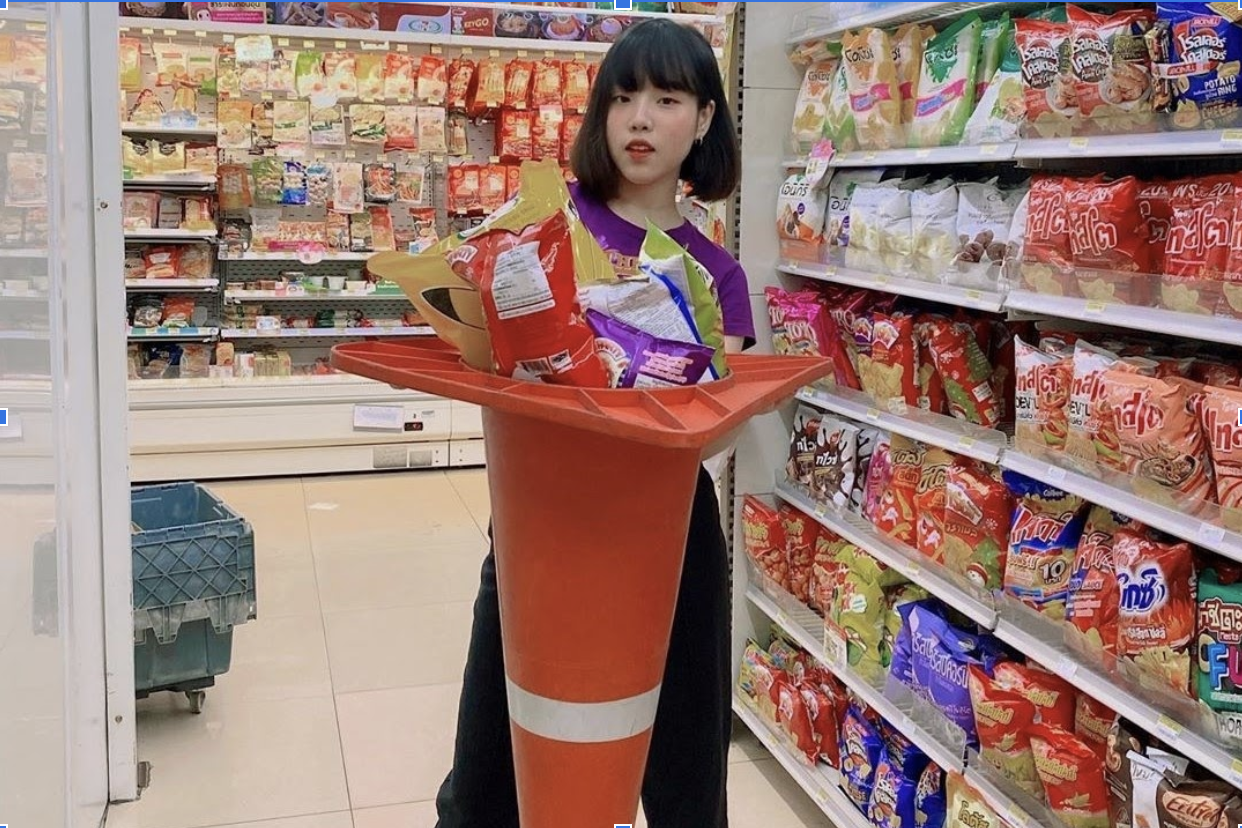By Laila Menchaca
INNOVATIVE: Thailand thinks up creative ways to move around their new plastic ban.
Beginning January 1, 2020, Thailand introduced a new plastic bag ban that would limit store owners from offering single-use plastic bags. In 2021, single use plastic bags will be banned from being distributed in stores. This ban resulted in the trending movement where customers in Thailand creatively find a way around the plastic ban. Thailand citizens have introduced the idea of utilizing arbitrary objects to hold their groceries. Such random objects include flowerpots, wheelbarrows, suitcases, laundry baskets and many more. Others have added a fashionable twist and put their groceries in luxury brand bags and purses.
The trend went viral and many were posting on social media to beat the “contest” of who can bring the weirdest object to carry their groceries in. By participating, people were not only having fun and going viral, but they were also helping reduce the use of plastic bags and being more environmentally friendly. “Thailand was ranked sixth among the world’s top countries that dumps waste into the sea,” according to Ecowatch.com. Customers can bring in their own bags or can pay a small fee to purchase a reusable cloth bag from the grocery stores. During this campaign to ban plastic bags, plastic bag usage has reduced the use of plastic bags by 2 billion, or about 5,765 tons last year, according to the ministry of Natural Resources and Environment.
Many consumers have stated strong opinions on the plastic ban. Consumers like 63-year-old Viroj Sinchairokekul said, “Instead, I will go to the local markets because they still give us plastic bags.” Due to the new plastic ban, Thailand’s 1,000 plastic bag factories are suffering without aid from the government, according to Straitstimes.com. This will lead to many factory workers losing their jobs, and on the hunt for a new source of income. Furthermore, companies have stopped ordering plastic bags from factories since October of last year, resulting in the loss of 14 million baht ($624,000) monthly revenue, says Straitstimes. While the environment is benefiting from the plastic ban, others are struggling to find a way to make income during such a scarce time.
Thailand hopes to diminish the amount of plastic used in the coming year. Environmentalists hope to rid of the “throw away” mentality and teach others to reuse their materials and search for more environmentally safe ways to complete their daily tasks. Reusable cloth bags are being made available for customers to purchase in attempts to help set a routine for customers to limit their plastic bag use and help the environment during the climate change crisis.
Countries such as Africa, Europe, Australia, and North & South America have banned plastic bags and now charge fees in stores to purchase a reusable plastic bag. Many are using biodegradable bags and other locations have enforced strong recycling programs. Laws in California have passed to rid of single use plastic bags and enforce the use of reusable grocery bags and totes. As the need to reduce plastic continues to grow, we see the efforts other countries are giving to help save our environment and provide ways for their citizens to participate in the movement.

